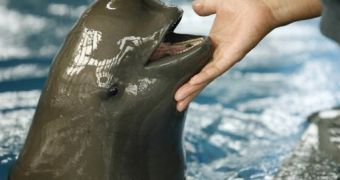This past Thursday, the Environmental Investigation Agency (EIA) released a new report saying that several species of whales, dolphins and porpoises risk going extinct in the not so distant future.
According to the environmental group, overhunting is to blame. Specifically, the Agency points the finger at Japan and its present hunting practices.
In the report, EIA explains that the yearly hunting quotas set for Japanese fishermen are established based on information concerning the overall headcount for different species of whales, dolphins and porpoises.
The problem is that the information used when establishing said quotas are as much as 20 years old, and therefore not exactly true to facts.
Otherwise put, Japan works on the assumption that there are as many marine mammals currently swimming the seas and oceans as they were two decades ago, and thus ends up setting high annual hunting quotas.
Since this is not the case, more marine mammals are killed than their population allows for. In time, this practice is nothing if not likely to drive several species to extinction.
“The apparent absence of both up-to-date information on the status of populations and a scientifically rigorous method for setting catch limits displays a lack of responsibility by the Government to ensure the sustainability of small cetacean populations in Japanese waters,” it adds.
Weather Underground tells us that, this year, Japan's catch limit was one of 16,655 for small cetaceans. This quota might be considerably smaller than 30,000 marine mammals that were being killed on a yearly basis until 1993 when Japan first introduced catch limits, but many species are still overhunted.
Thus, EIA says that the current catch limits for Dall's porpoises are nearly five times higher than the sustainable limit. The catch limits for the stripped dolphin are also four times higher than the safe threshold.
“The [Japanese] government has a responsibility to restore and maintain cetacean species at their former levels,” environmentalist with EIA stresses.
This is not the first time when the Japanese government is accused of supporting unsustainable hunting practices and thus endangering marine biodiversity.
Most of the times, it has defended its choices by saying that coastal whaling is not just a longstanding tradition, but also necessary for scientific research.

 14 DAY TRIAL //
14 DAY TRIAL //